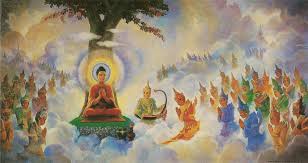Application Clinic: PhD Programs in Religious Studies
Wednesday, November 18, 2015, 4:30pm: Swift 200
RSVP (Nov 1)
Are you applying to PhD programs in Religious Studies? Let us help you! The Philosophy of Religions Club and Workshop is teaming up with several other groups to offer an application clinic, in which current Div School PhD students will read your statement of purpose and offer constructive feedback to help you score that offer.
DEADLINES:
RSVP to Workshop Coordinator Anil Mundra (amundra@uchicago.edu) by November 1st.
If you want to participate please tell us:
- a) what area/departments you intend to apply for;
- b) whether you are comfortable having your statement read and discussed by the whole group, or would prefer a one-on-one critique.
We will need you to send us the draft of your statement of purpose (NOT your writing sample) by November 11th so the readers have time to formulate their comments.
Then we will meet on November 18th to discuss the statements (over dinner and beverages to take the edge off!)
Thanks,
The PR Workshop




